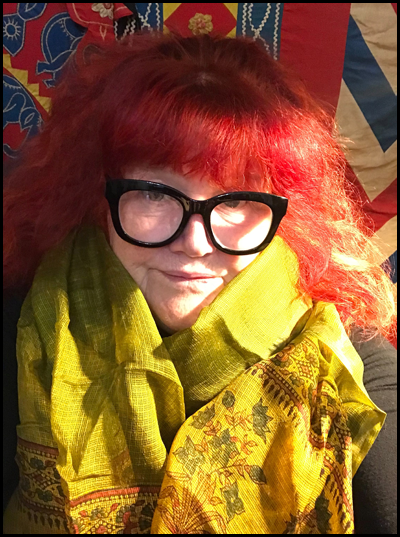
Barbara Jones
County Durham-born, Barbara Jones’ whole life has focused on the creative process. Encouraged from a child to to use my artistic interests, her talents blossomed at Bishop Auckland Grammar School, before she went on in the 1970s to study on a Foundation Course at Loughborough College of Art and from there to undertake an honours degree in Fashion and Textiles at Manchester Polytechnic, as one of only 12 specialising in Embroidery. She came to Plymouth on being invited to join the recently-appointed Principal of Plymouth College of Art, bringing a wealth of experience in the Creative Industries, and also in running Further and Higher Education establishments. She saw the parallels between the North-East, where she had been Vice Principal of Cleveland College of Art and Design. There she had been instrumental in achieving, for that small specialist institutions, Excellence in Oftsted and Good in Quality Assurance ratings, and so came with expectations of high achievement in Plymouth. As Deputy Principal, she immediately began the process of improving both the physical environment and the learning experience, with a new four-storey craft workshop, bringing some of te best craft facilities in Europe. A block for textile design, printing and with an amazing drawing studio followed. As a result, student numbers increased significantly, and to support this, the Palace Court Studios for further education. At the same time, she was central to creating the first Free School for the Arts, in the shape of Plymouth School of Creative Arts, colloquially known as the Red Shed due to its bright facia. This was a significant achievement in the face of considerable doubts about the likelihood of success, using a site in one of the most deprived parts of Millbay and Stonehouse, bringing £15 million of additional funding and employment to the city, while providing much-needed local arts education for children. It played a key role in changing the face of the neighbourhood, helping to recreate it as a thriving multi-cultural one. Recently, she instigated the development of a making environment, using the old Union Street Jaeger factory, to help fashion students produce small collections as well as providing education and training opportunities for a textile industry that is coming back to the UK. With her early career experience as a freelance textile artist and maker, she has been able to advise students on career opportunities. In her retirement, she has returned to making art – her first love. She has made a very important contribution to Plymouth, and is continuing to do so.